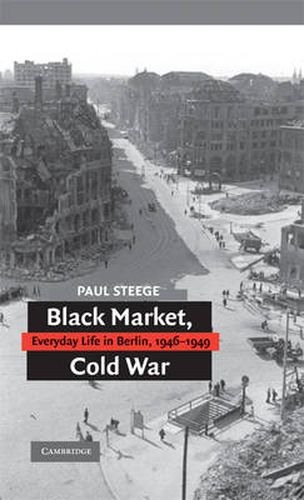Readings Newsletter
Become a Readings Member to make your shopping experience even easier.
Sign in or sign up for free!
You’re not far away from qualifying for FREE standard shipping within Australia
You’ve qualified for FREE standard shipping within Australia
The cart is loading…






This book explains how and why Berlin became the symbolic capital of the Cold War. It brings the history of the Cold War down to earth by focusing on the messy accounts of daily struggles to survive rather than seamless narratives of diplomatic exchange. By following Berliners as they made their way from ration offices to the black markets, from allied occupation bureaus to the physical and symbolic battles for the city’s streets and squares, Paul Steege anchors his account of this emerging global conflict in the fractured terrain of a city literally shattered by World War II. In this history of everyday life, he claims for Berliners a vital role in making possible Berlin’s iconic Cold War status. The world saw an absolutely divided city, but everyday Berliners crossed its many boundaries, and these transgressive practices brought into focus the stark oppositions of the Cold War.
$9.00 standard shipping within Australia
FREE standard shipping within Australia for orders over $100.00
Express & International shipping calculated at checkout
This book explains how and why Berlin became the symbolic capital of the Cold War. It brings the history of the Cold War down to earth by focusing on the messy accounts of daily struggles to survive rather than seamless narratives of diplomatic exchange. By following Berliners as they made their way from ration offices to the black markets, from allied occupation bureaus to the physical and symbolic battles for the city’s streets and squares, Paul Steege anchors his account of this emerging global conflict in the fractured terrain of a city literally shattered by World War II. In this history of everyday life, he claims for Berliners a vital role in making possible Berlin’s iconic Cold War status. The world saw an absolutely divided city, but everyday Berliners crossed its many boundaries, and these transgressive practices brought into focus the stark oppositions of the Cold War.